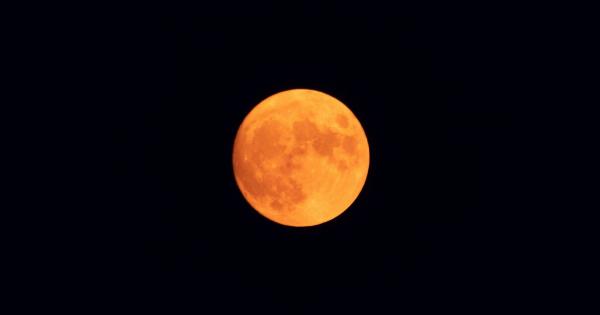The full moon has long captivated human imagination, stirring up legends, myths, and affecting the emotional and mental states of individuals. From werewolves to lunar rituals, the full moon remains a subject of intrigue and fascination.
But beyond folklore and superstitions, several studies suggest that the full moon indeed has a profound impact on our emotional and mental well-being.
2. The Biological Rhythm of the MoonIt is widely acknowledged that the moon is deeply interconnected with various aspects of life on Earth, particularly the tides.
In line with this, researchers theorize that, just as the moon exerts its gravitational pull on water bodies, it may also influence the water content within our bodies. Given that the human body is composed of about 60% water, the moon’s gravitational effects could potentially affect our emotional and mental states.
3. Enhanced Emotional Sensitivity during Full MoonOne common belief is that the full moon intensifies emotions, leading to increased sensitivity, restlessness, and even heightened aggression.
In fact, the word “lunacy” originates from the Latin term “lunaticus,” which means “moon-struck.” While substantial scientific evidence is somewhat lacking in this regard, anecdotal accounts and certain studies provide intriguing insights.
4. Full Moon and Sleep PatternsA study published in the journal Current Biology found that participants slept an average of 20 minutes less and experienced decreased deep sleep during nights with a full moon.
These results indicate that the lunar cycle could impact our sleep patterns, potentially leading to altered moods and decreased overall well-being. Further research is needed to fully comprehend the intricate relationship between the full moon and sleep quality.
5. The Moon’s Effect on Mental Health DisordersGiven the moon’s potential to affect emotions, it follows that individuals with mental health disorders may be particularly sensitive to its phases.
Some studies have suggested a correlation between the full moon and an increase in psychiatric emergencies, including manic episodes and suicidal tendencies. Although not definitive, these findings highlight the importance of exploring the moon’s influence on mental health.
6. The Role of the Moon in Natural Cycles
Many natural processes are regulated by lunar phases. For instance, numerous species synchronize their reproductive cycles with the moon’s phases, including corals, certain fish, and even insects.
Humans, too, are deeply connected to natural cycles, and it is possible that the moon’s influence extends beyond our unconscious behaviors and into our emotional and mental realms.
7. Full Moon Rituals: Harnessing Lunar EnergyThroughout history, various cultures have engaged in full moon rituals and ceremonies. These practices often involve meditation, manifestation work, and setting intentions during the moon’s peak energy.
While the scientific validity of such rituals may be debated, the act of channeling one’s energy and focusing on personal growth and well-being can have positive effects on mental health.
8. Moon Phases and Women’s Mental HealthWomen’s menstrual cycles, which typically last around 28 days, have long been associated with the moon’s phases.
Though scientific evidence is inconclusive, many women report experiencing mood swings, heightened emotions, and energy fluctuations during the full moon. Exploring the potential connection between lunar cycles and women’s mental health could provide valuable insights into how environmental factors impact psychological well-being.
9. Lunar Therapy: Harnessing Moon Energy for HealingLunar therapy, also known as moon therapy or moon bathing, is a holistic approach that encourages individuals to connect with the moon’s energy to promote overall well-being.
Moon bathing involves spending time outdoors during full moon nights, absorbing the lunar energy and practicing mindfulness. While more research is required to establish its efficacy, many individuals report feeling rejuvenated and centered after engaging in moon bathing practices.
10. Harnessing the Power of Intentional Full Moon PracticesWhether or not you believe in the moon’s influence on emotional and mental health, intentional practices during full moons can provide a sense of purpose and control over one’s life.
Engaging in activities such as journaling, practicing gratitude, or engaging in creative endeavors during the full moon can serve as a catalyst for personal growth and emotional well-being. Moreover, these practices can help individuals cultivate self-awareness and a deeper connection to the natural world.






























